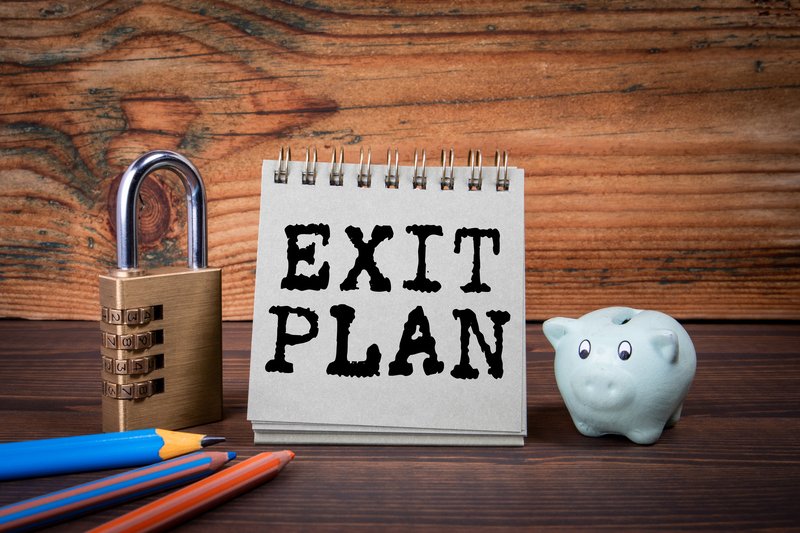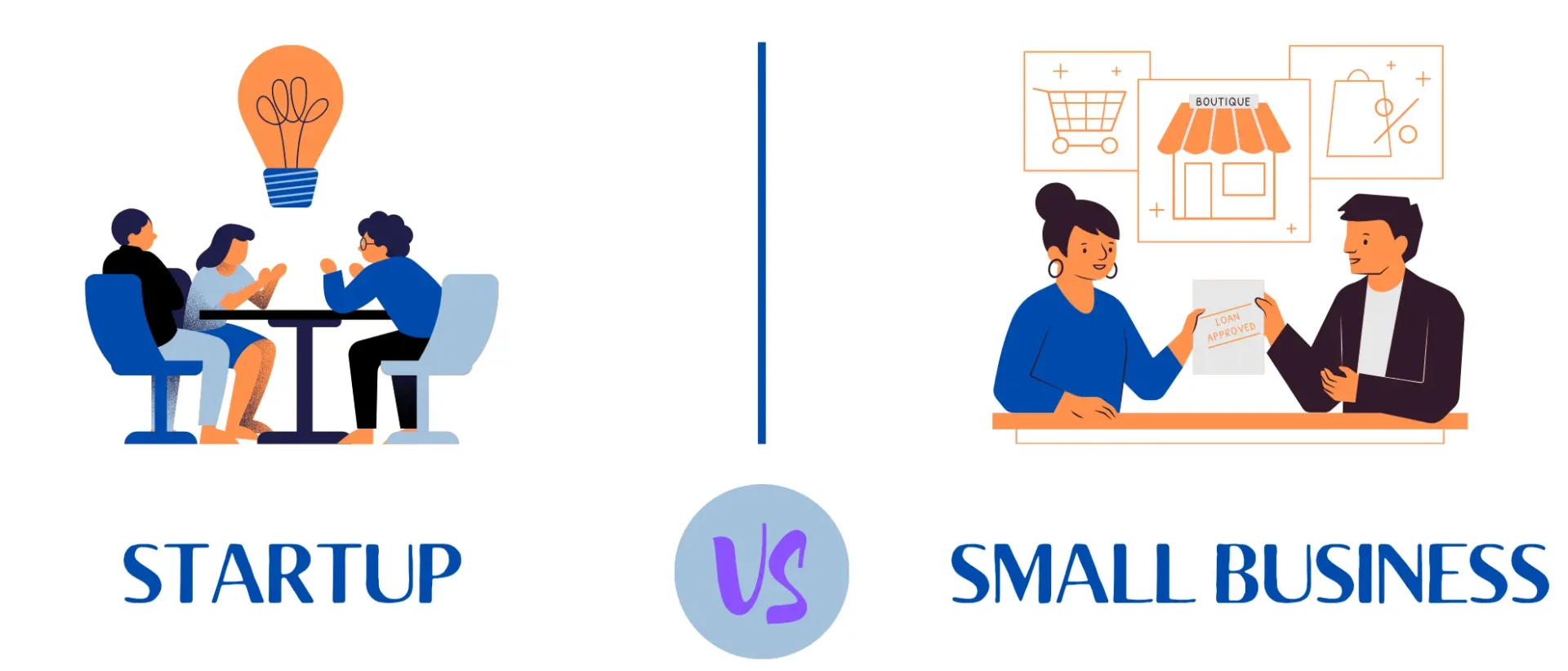Many people think startups and small businesses are the same, but they are actually very different. Both start small, but they have different goals, ways of growing, and ways of running their business. Understanding the differences can help people who want to start a business choose the right path.
In this article, we’ll look at how startups and small businesses are different in simple terms, covering things like goals, money, growth, risks, and how they operate.
Definition and Goals

A small business is usually a company that serves a specific area or group of people. It grows slowly and focuses on making money and staying stable over time.
A startup is a new company that wants to grow very fast. It often has a new idea or product that is different from what is already available. Startups aim to become very big, very quickly, often trying to reach people all over the world.
Key Points About Small Businesses:
- Focus on a small area or group of people
- Slow and steady growth
- Focus on making money over time
Key Points About Startups:
- Focus on new ideas and fast growth
- Aim to grow quickly and reach lots of people
- High risk but can have high rewards
Growth and Scalability

A small business usually grows at a slow, steady pace. It builds up customers over time and doesn’t try to expand too quickly. Small businesses often stay local or only serve a small number of people.
Startups, however, try to grow fast. They design their business to get bigger without their costs going up as much. They often want to sell their product or service to lots of people, maybe even across the world.
Key Growth Differences:
- Small businesses grow slowly and focus on a smaller market.
- Startups try to grow quickly and expand to bigger markets.
Funding and Capital

Small businesses often use personal savings or loans from banks to start and grow. They may also use the money they earn from selling their products or services.
Startups usually need a lot of money to grow fast, so they look for outside investors. These investors might include venture capitalists, angel investors, or people who support the startup through online crowdfunding.
Small Business Money Sources:
- Personal savings
- Bank loans
- Profits from sales
Startup Money Sources:
- Venture capital
- Angel investors
- Crowdfunding
Read More: Ecommerce Business Intelligence: Meanings, Advantages, Scenarios, and Resources
Innovation and Risk

Startups are usually focused on innovation—they want to create something new or solve a problem in a unique way. Because of this, they take bigger risks. If their idea doesn’t work, the startup might fail.
Small businesses usually don’t try to make big changes in their industry. They prefer to do things that are already proven to work, which makes them less risky.
Key Differences in Innovation:
- Startups focus on creating something new and taking risks.
- Small businesses focus on steady, proven methods and have less risk.
Market and Customer Focus

Small businesses often focus on serving a local community or a specific group of people. They build relationships with their customers and aim to keep them for a long time.
Startups, however, often aim to serve a much larger group of people. They want to reach as many customers as possible, sometimes even on a global level.
Customer Focus Differences:
- Small businesses serve local or specific customer groups.
- Startups aim to reach a large, sometimes global, customer base.
Operational Structure and Culture

Small businesses usually have a more traditional structure. Employees have specific jobs, and there is usually a clear hierarchy. They value stability and long-term employment.
Startups, on the other hand, often have a less structured environment. Employees might take on many roles, and the work culture is more flexible. Startups value fast results and the ability to adapt quickly.
How They Run:
- Small businesses have clear roles and aim for stability.
- Startups are flexible and adapt to changes quickly.
Long-term Plans and Exit Strategies

Small business owners often plan to run their business for a long time. They might pass the business down to their children or sell it to another local owner when they retire.
Startups, however, usually have a plan to exit after reaching their growth goals. This might mean selling the company to a bigger business or offering shares in an IPO (Initial Public Offering).
Exit Strategy Differences:
- Small businesses are often passed down or sold locally.
- Startups aim to sell to a larger company or go public.
Risk and Failure Rates

Both startups and small businesses face risks, but the level of risk is different. Startups take bigger risks because they are trying to grow fast and disrupt the market. This makes their chance of failure higher.
Small businesses take fewer risks because they focus on stable growth. While they still face challenges like competition, their failure rate is generally lower.
Risk Levels:
- Startups face higher risks because of their fast-paced goals.
- Small businesses have lower risks but still face some challenges.
Conclusion
Startups and small businesses both start small, but their goals, strategies, and risks are very different. Startups are designed for fast growth and innovation, while small businesses focus on steady, long-term success. Knowing the differences can help new business owners choose the right path for their goals and resources.
FAQ
- What’s the main difference between a startup and a small business?
- A startup focuses on fast growth and new ideas, while a small business focuses on slow, steady growth and serving a local or specific group of people.
- How do they get money?
- Startups often look for investors to grow quickly, while small businesses rely on savings, loans, or profits from their business.
- Which is riskier?
- Startups are riskier because they try to grow fast and take bigger chances. Small businesses are less risky because they focus on stability.
- Can a startup become a small business?
- Yes, if a startup stops trying to grow quickly and focuses on stability, it can become more like a small business.
- Which is better for long-term ownership?
- Small businesses are usually better for long-term ownership, as they are often passed down or run for many years.
